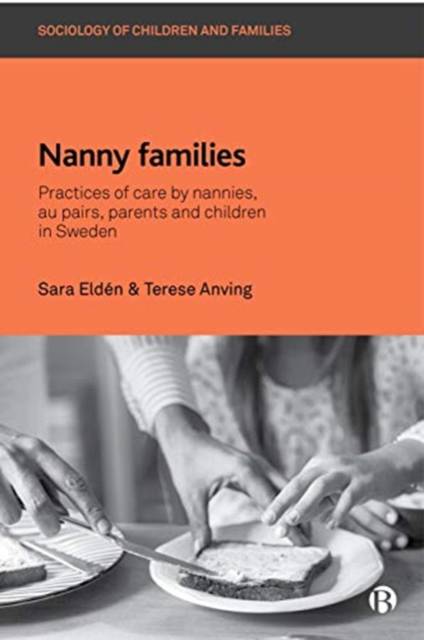
Door een staking bij bpost kan je online bestelling op dit moment iets langer onderweg zijn dan voorzien. Dringend iets nodig? Onze winkels ontvangen jou met open armen!
- Afhalen na 1 uur in een winkel met voorraad
- Gratis thuislevering in België vanaf € 30
- Ruim aanbod met 7 miljoen producten
Door een staking bij bpost kan je online bestelling op dit moment iets langer onderweg zijn dan voorzien. Dringend iets nodig? Onze winkels ontvangen jou met open armen!
- Afhalen na 1 uur in een winkel met voorraad
- Gratis thuislevering in België vanaf € 30
- Ruim aanbod met 7 miljoen producten
Zoeken
Nanny Families
Practices of Care by Nannies, Au Pairs, Parents and Children in Sweden
Sara Eldén, Terese Anving
€ 225,45
+ 450 punten
Uitvoering
Omschrijving
Available Open Access under CC-BY-NC licence Paying privately for childcare is a growing phenomenon worldwide, a trend mirrored in Sweden despite the prevalence there of publicly funded daycare. This book combines theories of family practices, care and childhood studies with the personal perspectives of nannies, au pairs, parents and children to provide new understandings of what constitutes care in nanny families. The authors investigate the ways in which all the participants experience the caring situation, and expose the possibilities and problems of nanny and au pair care. Their study illuminates the ways in which paid domestic care workers 'do' family and care; in doing so, it contributes to wider political and scientific discussions of inequalities at the global and local level, reproduced in and between families, in the context of rapidly changing welfare states.
Specificaties
Betrokkenen
- Auteur(s):
- Uitgeverij:
Inhoud
- Aantal bladzijden:
- 184
- Taal:
- Engels
- Reeks:
Eigenschappen
- Productcode (EAN):
- 9781529201512
- Verschijningsdatum:
- 31/08/2019
- Uitvoering:
- Hardcover
- Formaat:
- Ongenaaid / garenloos gebonden
- Afmetingen:
- 163 mm x 241 mm
- Gewicht:
- 566 g

Alleen bij Standaard Boekhandel
+ 450 punten op je klantenkaart van Standaard Boekhandel
Beoordelingen
We publiceren alleen reviews die voldoen aan de voorwaarden voor reviews. Bekijk onze voorwaarden voor reviews.











